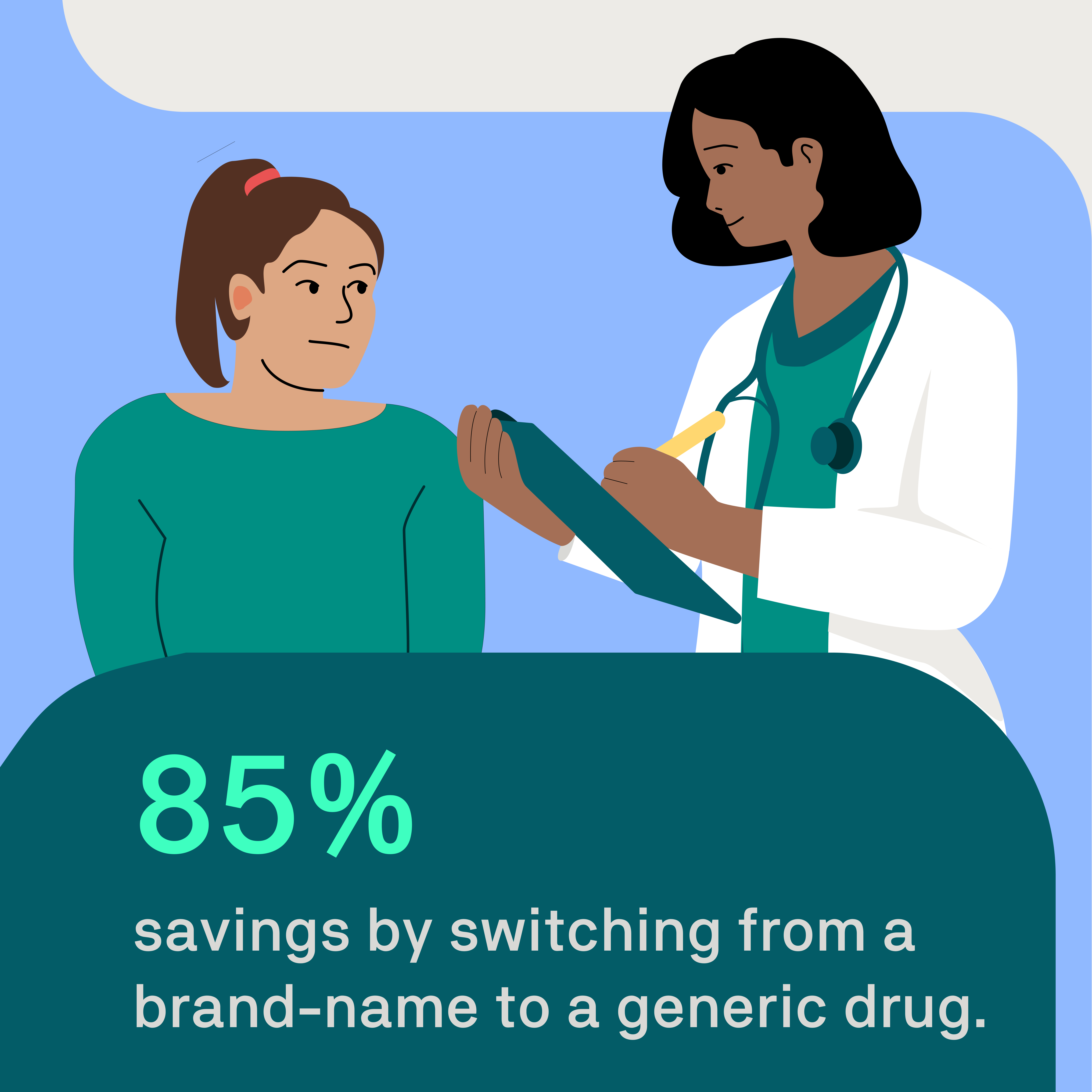7 things our pharmacists want you to know when starting a new medication

More than a million people visit emergency rooms each year for adverse drug events — unintended and harmful consequences from taking medication.1 These events can be the result of an allergic reaction, side effects, overmedication, or medication errors.
The good news is that many adverse drug events are preventable as long as you take the proper precautions. Below are seven tips from pharmacists at Express Scripts® Pharmacy to help you stay safe when starting a new prescription medication.
1. Read the medication label in its entirety and any accompanying information.
The medication label contains a ton of valuable information, including a description of your medication, the dosage, directions for how to take it, expiration or use by date, storage requirements, potential drug interactions, and more.
“In order to gain the most benefit from a medication, you need to take it exactly as prescribed,” explained Jay Belcher, a registered pharmacist with Express Scripts® Pharmacy.
Certain prescription medications also include an FDA-approved Medication Guide that addresses issues specific to your prescription in order to help you avoid serious adverse events. All new prescriptions dispensed by Express Scripts® Pharmacy include a medication patient advisory leaflet that contains more detailed information about your medication.
2. Medications can take time to work.
Just because you start a new prescription medication doesn’t mean the effects are immediate. Certain medications, like beta blockers, asthma rescue inhalers, and antacids, start working right away.
However, other medications — particularly maintenance medications like statins, antidepressants, and ADHD medications — may take several weeks of consistent use until you notice results.
3. Watch for side effects.
Every medication has the potential for side effects and they can occur at any time during the course of your treatment. Side effects can vary — from something as simple as a mild headache or dry mouth to life-threatening events like a heart attack or organ failure, although these more serious events are rare.
Belcher said it’s important to understand that some side effects decrease over time as your body adjusts to the medication. He also recommends reaching out to your pharmacist to discuss options if side effects are an issue.
“There may be an easy solution to minimizing side effects, such as taking your medication with food, with certain supplements, or at a particular time of day,” said Belcher.
4. Medication is just one tool.
Medication isn’t a magic pill that will make all of your ailments go away. It’s just one tool in your healthcare toolbox. Often times, prescription medication can actually yield better results when combined with other things, such as lifestyle modifications, behavioral or psychotherapy, or even other prescription medications.
5. Keep your pharmacist informed.
Every time you fill a new prescription, let your pharmacist know about all the other medications you’re taking, including over-the-counter medications, vitamins, and supplements. This is important to avoid medication interactions, which can affect how well your new medication works or even make side effects or current medical conditions you already have worse.
Express Scripts® Pharmacy patients can fill out this health, allergy, and medication questionnaire to alert our pharmacists to any potential medication interactions. Additionally, filling all your prescriptions at one pharmacy is an easy way to ensure all your medications work well together.
6. Follow up with your doctor or healthcare professional.
Filling a new prescription is just the first step in your healthcare journey. It’s important to follow up with your doctor or specialist to evaluate how well that new medication is working for you.
“If you are taking a medication and you aren’t noticing a benefit, you feel worse, the effect is not what you expected, or the side effects are intolerable, it’s time to touch base with your provider,” said Belcher.
Your prescriber may need to adjust the dosage of your medication or prescribe a new medication option.
7. Ask us questions.
Knowledge is power, especially when it comes to your health. Our specially trained pharmacists are available 24/7 — yes, that means nights, early mornings, weekends, and holidays — to help you find answers to all of your questions.
“We are often left to advocate for our own health and that of our loved ones,” said Belcher. “Your pharmacist can provide the information you need to enable you to make the best health choices for you and your entire family.”
1 Centers for Disease Control and Prevention: Medication Safety Basics (accessed May 16, 2022): https://www.cdc.gov/medicationsafety/basics.html.
Posted date: June 30, 2022


